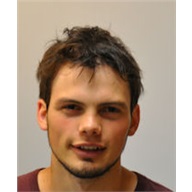A great deal of sludge is released during the production of drinking water. Until recently, this ended up at the waste disposal site. The Interreg project NuReDrain aims to change that: “We convert the sludge into adsorbing granules that extract phosphates from our surface water.”
Sludge can remove unwanted phosphates from our water
In 2014, VITO and drinking water provider De Watergroep launched the OperAqua project. The goal: identify uses for sludge from water treatment plants. Various possibilities were tested in the lab. One option jumped out: the conversion of sludge into filter granules that can remove phosphates and other substances from surface water.
Useful granules
“OperAqua was a forerunner to the current NuReDrain project,” say VITO researchers Jef Bergmans and Bart Michielsen. “The technological focus has remained the same: convert a residual flow – sludge – into an economically useful material. The sludge takes the form of filter granules that can extract unwanted substances from surface water. In practice, this is done by grinding sludge into granules. When the granules are dry, they are treated thermally. In doing so, we seek a balance between stability and removal capacity. The granules may not disintegrate in water, or be so hard that they lose their adsorbing effect. The name NuReDrain (Nutrients Removal and Recovery from Drainage Water) refers to the drainage water of farms, which often contain many phosphates. We are able to remove these phosphates with our granules.”
Pilot installation
If the test results are positive, the granules will initially be used mainly by De Watergroep. The water company collects surface water in large reservoirs to produce drinking water. If the water contains too much phosphate, it leads to algae growth. Jef Bergmans: “Algae extract a lot of oxygen from the water and disrupt the water treatment process. With the NuReDrain granules, we can pre-treat river or canal water. Since the beginning of April 2018, we have been testing the principle in a pilot installation at De Blankaart water production centre. Some eighty kilos of granules remove the phosphate from the water. When the adsorbing granules are ‘full’, we replace them with new ones. This year we want to thoroughly test our materials in realistic conditions.”
Circular economy
Over time, NuReDrain hopes to integrate the filter granules into a circular process. The researchers are examining whether it is possible to separate ‘trapped’ phosphates from the granules. This would allow the phosphate to be used again in agriculture. Ideally, this would happen without damaging the granules, so that the filter material could also be reused. “In addition, we are also exploring new applications,” says Jef Bergmans. “For example, the filter granules can also be used to remove arsenic or other metals from water. And the production process also works with sludge of a different origin. The technology offers many possibilities, which we hope to show with our demonstration projects.”
Large market
The basic technology for the filter granules came about in the context of OperAqua. The process is being further refined within NuReDrain. The emphasis is now on practical possibilities. Bart Michielsen: “On the one hand, we are looking for ways to produce our granules cost-efficiently and on a large scale. We want to increase production from a few kilos to one hundred to five hundred kilos. In addition, we are also further examining what the market for granules might be. The filter granules offer a lot of potential in agriculture and horticulture. Think of greenhouse farms that collect and purify all their spray water. VITO/ Vlakwa is coordinating the NuReDrain project, consulting with potential partners and promoting filter technology to agricultural organisations and policymakers. In the near future, we plan, among other things, case studies in greenhouses and agricultural fields.”
NuReDrain is financed by the Interreg North Sea Region Programme and by the provinces of Antwerp and West Flanders. The project will run through the end of 2019.
With the filter granules from the NuReDrain project, we want to extract phosphate from the surface water before it ends up in our reservoir. Because it concerns large flows – we collect some 4 000 cubic metres of water per day – we built a small pilot set-up for NuReDrain. This enables us to test whether we can achieve a good yield for phosphate removal. We are also determining the practical requirements for a filter installation. In the long term, this technology offers many opportunities for the circular economy.


